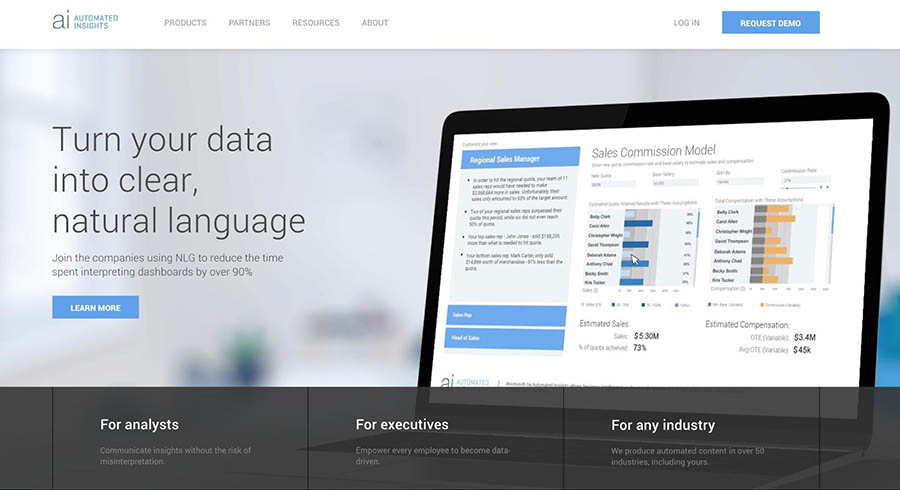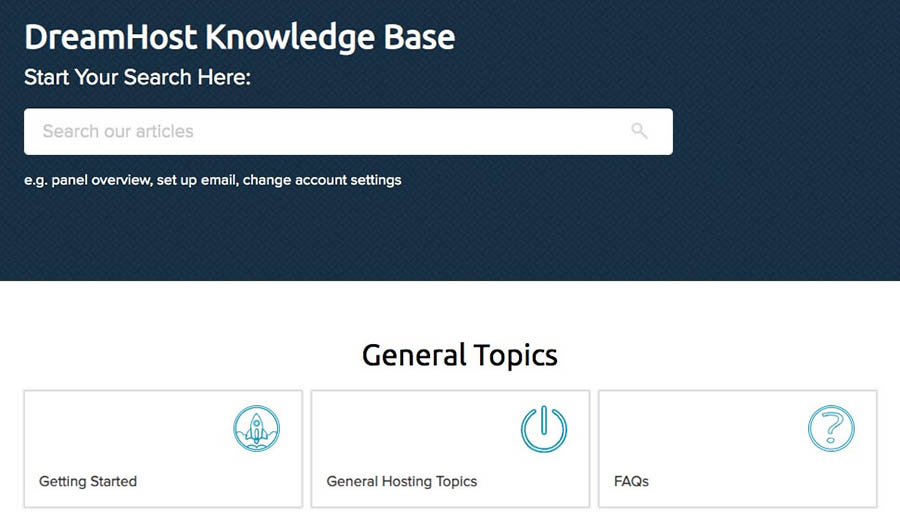
Search Engine Optimization (SEO) is a vital part of any website owner or digital marketer’s work. This is unlikely to change in the new year, but that doesn’t mean you can just rely on old strategies. In fact, as browsing habits change, you’ll need to keep your SEO techniques up to date.
The way people use search engines such as Google changes constantly. For example, over the past few years, “mobile-first” has become an essential mantra for improving both accessibility and page rankings. While nobody can tell for sure what the future holds, it is possible to get a good idea of what you should focus on for the next year.
In this article, we’ll talk about why SEO will continue to be a critical consideration in the upcoming year. We’ll also discuss some of the trends that may come to dominate your SEO strategy in 2020. Let’s get started!
The Current State of Search Engine Optimization (SEO)
In case you’re new to the concept, Search Engine Optimization (SEO) refers to a series of techniques for helping your site rank higher in search results. It’s an integral aspect of everyday work for most developers and content creators and looks poised to remain so for years to come.
There is no shortage of ways you can improve SEO on your website. General considerations include making sure its loading times are kept to a minimum, for example, and performing keyword research to tailor your posts to match people’s search queries.
However, while it might seem like SEO practices are evergreen, this is far from the case. In reality, what ranks well depends on the search engines’ algorithms, which are continually changing. This naturally means you can’t keep relying on the same optimization techniques over time and expect good results.
As such, you’ll want to stay up-to-date with the changing world of SEO. This will help you keep your site optimized well into 2020 (and beyond).
Optimize Your Site with DreamHost
Our automatic updates and strong security defenses take server management off your hands so you can focus on SEO.

SEO Trends: 12 Tips for Ranking Higher in 2020
To help you get a head-start on optimizing your content in the new year, we’re now going to take a look at some of the SEO trends that will be worth paying attention to in 2020. We’ll also give you some tips on how to adapt your content and strategy to take advantage of those trends. Let’s jump right in!
1. Prepare Your Site for Voice Search
Voice search has already nestled comfortably into many people’s lives. Perhaps you use Apple’s Siri, Amazon’s Echo, or Google’s Assistant, just to name three examples. As this technology becomes more prevalent, you’ll need to consider how voice search will affect your SEO efforts.
The main difference between typical SEO strategies and optimizing for voice search involves using more “natural phrasing.” After all, text searches usually involve stilted, compressed phrases like “best blog hosting 2019.” However, if you were to use your voice to search for the same information, you’d probably say something like: “What is the best hosting for blogs this year?”
Do you notice how the second phrase is both more natural and considerably longer? This means you’ll also want to consider optimizing your content for long-tail keywords to a greater degree. Since the ultimate goal is to use keywords people are likely to search for, this might actually make your job easier, as you won’t need to jam cumbersome key phrases into your content.
2. Use Schema to Markup Your HTML
Schema is structured data that can help web browsers and search engines gain a deeper understanding of your page’s content. Consequently, adding this markup can improve how your website displays (and ultimately ranks) in Search Engine Results Pages (SERP).
It’s recommended that Schema markup be used to benefit content such as creative works, events, recipes, organizations, people, and products. For example, a search result using Schema will display richer information than one without.

As you can see in the example, one of the results displays ratings, images, and more. You can manually add this kind of markup to your posts, or you can use one of the many tools available to test and improve your Schema data. Fortunately, if you’re not prepared to tinker with the HTML of your posts, you can employ a dedicated plugin to help you take advantage of this SEO functionality.
Additionally, you can review Google’s own structured data guidelines, as well as several reports offered in their webmaster tools. Ultimately, Schema is a vital addition to your website if you want search engines to read the details of your products, rather than view your content as non-descript text.
Related: 13 Simple Ways to Boost SEO on Your WordPress Website
3. Optimize Your Site for Speed
Optimizing your site for performance is something we’ve discussed in several previous posts. However, the importance of this step bears repeating. Loading times will undoubtedly remain a huge consideration in 2020 — especially when it comes to improving your site’s rankings.
This issue came to the forefront in 2018, when Google announced it would begin factoring in page speed for mobile devices. This was due to the growing popularity of mobile browsing. Since then, keeping load times short is a primary concern for all website owners.
Fortunately, we’ve also previously explored how to speed up your site in general. Key strategies include implementing a caching solution, as well as optimizing your media files. For more information, you can take a look at our full series of tutorials on performance optimization.
4. Make Use of Artificial Intelligence (AI)
The term Artificial Intelligence (AI) has a distinctly futuristic ring to it. So it’s no surprise that it’s going to play a major role in how SEO changes in the near future. We’re (unfortunately) not talking about hiring a robot to handle your SEO strategy, but that’s not as far from reality as you might expect.
Google already uses AI extensively, thanks to its RankBrain system. This is a bot that uses machine learning to continuously improve Google’s search results. It finds patterns and context in millions of pages, which the search engine can then use to return more relevant results for specific queries.
However, Google isn’t the only party that can also use AI to its advantage. In fact, tools that utilize machine learning to improve your SEO are becoming more popular. One such example is Automated Insights.

This solution helps you turn unorganized data, such as site analytics, into a clear narrative. In turn, that can help you spot patterns more quickly and start making improvements.

This WordPress plugin uses machine learning to help you optimize your content. It does that by both offering suggestions for the actual content and by adding structured metadata and suggesting relevant links.
We suspect that this is only scratching the surface of what AI-based tools will be able to do in the future. As such, getting familiar with this technology now can give you a vital head start.
5. Improve Your Mobile Pages
Google’s mobile-first index means that the search engine now ranks pages based on their versions designed for mobile devices. As such, even if your site performs flawlessly on a desktop, but it’s hard to use and sluggish when viewed on a smartphone, your SEO rankings will likely suffer.
For this reason, optimizing your site for mobiles is no longer optional. In reality, you’ll need to spend even more time making sure your mobile site is fast and usable. This is also called making your website responsive, since the goal is for it to work well regardless of the screen size or device type used to view it.
You’ll also need to consider how your site will actually work on different screens. For example, if you’ve designed your navigation for desktop browsing, is it still as intuitive and simple to use on mobile devices? If your site contains additional elements, such as pop-ups, you’ll also need to ensure that they don’t interfere with the mobile user experience.
Thankfully, this is not as difficult as it might seem. For instance, the vast majority of WordPress themes and plugins are built with responsive design in mind. However, to avoid any issues, you should still make sure to thoroughly test your site on multiple devices.
6. Focus on More Personalized Results
It often seems like people are getting less patient by the day. They want to find the information they need much more quickly, for instance, which is why Google has placed a greater focus on personalized results.
Most notably, Google actually gathers information about each individual user to return the most relevant results. Another example can be found in Google’s “answer boxes.”
Google’s service is also personalized by offering searchers contextual results based on previous searches or even the user’s location. If you try searching for “Where is the nearest coffee shop?”, you’ll be shown options that are close by.
This may seem like a tricky trend to leverage to your own advantage, but it’s far from impossible. You can actually increase your odds of appearing in answer boxes by merely providing clear and organized information on your site. Using lists and distinct headings to summarize each page’s contents will also help Google parse and index the information, making it easier to get your site featured in the coveted “position 0.”
7. Create an Optimized Knowledge Base
One area of SEO you might have overlooked is your knowledge base. As part of your customer service strategy, you want users to have access to support and common service questions on a 24/7 basis. This is where a robust knowledge base can be quite useful. However, you may not have considered the SEO benefits of a knowledge base.

A knowledge base can offer a plethora of rich content possibilities, all of which can help you improve your SEO ranking. This includes creating specific content full of valuable keywords. Additionally, you can fine-tune your knowledge base experience in order to keep customers loyal and happy.
In fact, this can be a make or break point for many businesses. Research indicates that 92% of customers will switch to another company after three or fewer bad customer service experiences. This means you have a golden opportunity to knock out two birds with one stone – provide rich content and excellent customer service at the same time.
Since you want users to be able to find the articles they need, knowledge base content also tends to follow SEO best practices. You can also ramp up your knowledge base efforts with the use of plugins.
One thing to keep in mind, since visitors to a knowledge base are not really looking to be entertained, you can just get down to business and cover the topic using highly optimized keywords.
8. Extend Your SEO Strategy to Your Social Media Channels
Having a strong social media presence is a significant aspect of online marketing. Naturally, this also applies to your SEO strategy. While social media shares aren’t currently a direct ranking factor, there does seem to be a correlation between social signals and rankings.
How this works is complicated, to say the least, and we won’t get too deep into the details here. Suffice it to say that the more your content is shared, the more traffic your site will likely get through search engines. This also helps you build backlinks and brand awareness, since more people will see and talk about your site.
As such, it’s vital that you factor in your social media presence when considering SEO. Focus on a few essential platforms and maintain a consistent strategy for sharing content and interacting with your followers. This will help you across all areas of your marketing.
Related: New to Influencer Marketing? Start Here
9. Shift Your Focus Away from Google
So far, we’ve consistently referred almost exclusively to Google when considering SEO. This is no accident, considering that it remains the most popular search engine by far. Still, it may not be a good idea to focus solely on Google’s ranking algorithms when putting together your SEO strategy.
Amazon’s search engine, for example, is becoming one of the most significant on the web. As it turns out, over half of shoppers turn to Amazon when searching for products, rather than to Google. Another example comes in the form of YouTube, which remains the world’s second-largest search engine.
What this means for you is that relying solely on Google may not be feasible from now on. For example, if you want your products to be more visible, you’ll need to consider Amazon to a much larger degree. If you have a lot a video and other non-text content, on the other hand, YouTube and similar platforms should be high on your list of targets.
10. Understand How Blockchain Affects SEO
If you’ve never heard of “blockchain” before, you’re not alone. While the concept is too complex to do full justice here, we can break it down in simplified terms. In essence, a blockchain is a list of records that cannot be modified after the fact. Every item – or block – in the chain is recorded and preserved as-is forever.
This technology can affect SEO because using blockchain changes the relationship between advertisers and website owners. With blockchains, you can guarantee that every click is valid, meaning that the days of bot visitors are over. This will lead to improved verified data, meaning that sites won’t be able to get away with artificially improving their rankings using automated clicks.
At this point, your best move is simply to learn more about blockchain and how it can affect your site and business. This is a complex and nuanced topic, so being prepared is key. You may even wish to hire an expert to help you if you’re interested in implementing blockchain yourself.
11. Improve Your Technical SEO
SEO is often thought of as a concern exclusive to content creators and marketers. However, the reality is that it’s also something developers need to think about. The process of “technical SEO” refers to making sure your site is compatible with the standards set by search engines.
Two major aspects of technical SEO that we’ve already touched on include page speed and mobile-friendliness. However, another crucial consideration is site security. For instance, Google now requires sites to be delivered using HTTPS in order to be labeled as “secure” in the Chrome browser.
These are just a few of the elements that fall under the technical SEO umbrella. While we don’t have time to go through everything, here are a few additional aspects you’ll want to consider:
- Site architecture. By designing your site in a logical way, you’ll make it easier for crawlers to catalog and index your pages, which improves your rankings.
- Rich snippets. This is a type of markup that adds extra information to your pages, making them stand out more in search results.
- Duplicate content. Search engines penalize sites that feature the same content in more than one location. As such, you’ll want to ensure that you don’t repeat or re-use the same text.
As we mentioned, this is by no means a comprehensive list. However, it should be enough to get you started, whether or not you have an interest in development.
Related: The Top 11 SEO Best Practices for Domains
12. Use SEO to Optimize Your Videos
For our final tip, we should acknowledge that SEO isn’t just about text. It’s also vital to look at SEO as it pertains to video content. This is increasingly important as video is becoming more prevalent by the day.
To give you an example, in 2018, nearly half of all internet users watched at least an hour of online video every week. Site owners have started to take heed of this trend, and you can do the same. An easy way to start? Include videos on your site. Search engines consider the quality of your content and the length of time users stick around as ranking factors. By using video, you can improve both metrics.
What’s more, you can also aim to improve SEO on the videos themselves. This involves using clear and descriptive titles, choosing the right video hosting platform, and making sure to address your users’ questions and pain points. This will make sure your visitors get the information they need while improving your rankings at the same time.
Moving on Up
Search Engine Optimization (SEO) is not a static pursuit. As the internet changes, so do the parameters that determine how well your site ranks in search engines. This means that you need to stay up-to-speed with the latest SEO trends in order to ensure continued success for years to come.
Are you ready to optimize your website for 2020? Consider DreamPress, our managed WordPress hosting solution. With automatic updates and strong security defenses, DreamPress takes server management off your hands so you can focus on what really matters: improving your rankings and getting more traffic. Learn more about plan options today.

